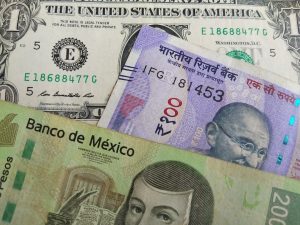Forex trading is a complex and dynamic market that is influenced by multiple factors. One of the most important factors that impact the forex market is the spread. The spread is the difference between the bid price and the ask price of a currency pair. It is the cost that traders incur when they enter a trade. The spread is constantly changing in the forex market, and traders need to understand the factors that make spread change in order to make informed trading decisions.
The first factor that affects the spread in the forex market is liquidity. Liquidity refers to the ease with which a currency can be bought or sold without affecting its price. When a currency has high liquidity, it means that there are many buyers and sellers in the market, and the spread is usually low. On the other hand, when a currency has low liquidity, the spread is likely to be higher. This is because there are fewer buyers and sellers in the market, which makes it more difficult to execute trades.
The second factor that affects the spread in the forex market is market volatility. Volatility refers to the degree of price fluctuation in the market. When the market is volatile, the spread tends to widen. This is because traders are more hesitant to enter trades, and there are fewer buyers and sellers in the market. This can result in higher trading costs for traders, which can make it more difficult to generate profits.
The third factor that affects the spread in the forex market is the time of day. The forex market is open 24 hours a day, and the spread can vary depending on the time of day. For example, the spread is usually lower during the Asian trading session, which is when the Japanese yen is most active. This is because there are more buyers and sellers in the market during this time, which increases liquidity and reduces the spread. On the other hand, the spread can be higher during the European and US trading sessions, which are characterized by higher volatility.
The fourth factor that affects the spread in the forex market is the type of currency pair being traded. Some currency pairs are more liquid than others, which can impact the spread. For example, major currency pairs such as EUR/USD and USD/JPY are more liquid than exotic currency pairs such as USD/ZAR and USD/TRY. This means that the spread for major currency pairs is usually lower than the spread for exotic currency pairs.
The fifth factor that affects the spread in the forex market is the broker. Different brokers offer different spreads, and the spread can vary depending on the broker. Some brokers offer fixed spreads, while others offer variable spreads. Fixed spreads remain the same regardless of market conditions, while variable spreads can change depending on market volatility and liquidity. Traders should choose a broker that offers competitive spreads and reliable execution.
In conclusion, the spread is a crucial factor in forex trading. It is the cost that traders incur when they enter a trade, and it can impact their profitability. The spread is influenced by multiple factors, including liquidity, market volatility, time of day, currency pair, and broker. Understanding these factors can help traders make informed trading decisions and manage their trading costs effectively.





